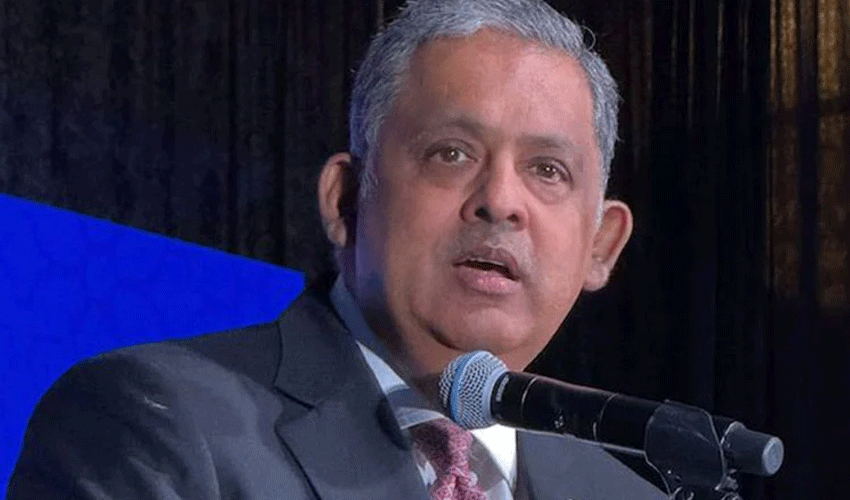Global peace is threatened by India’s expansionist aspirations: Pakistan’s ambassador to the US

Rizwan Saeed Sheikh, Pakistan’s ambassador to the US, has reiterated that the unresolved Kashmir conflict is still the biggest obstacle to enduring peace in South Asia and warned that India’s expansionist goal constitutes a severe threat to world peace and stability.
Speaking to senior academics and policy experts at prominent US think tanks, Ambassador Sheikh emphasized that the main obstacles to settling the long-standing Kashmir dispute are “unabated Indian stubbornness” and “consistent deviation from United Nations resolutions.”
The disputed “Akhand Bharat” map was presented in the Indian parliament, which Mr. Sheikh highlighted as a recent development and a “clear manifestation of New Delhi’s expansionist designs.” Such gestures, he cautioned, have serious ramifications for world peace in addition to being harmful to regional tranquilly.
“The Akhand Bharat map is an alarm bell that highlights India’s hegemonic ambitions; it is not just a political provocation,” the envoy said. He added that the resolutions of the UN Security Council on Kashmir are still enforceable. The validity of international law is perpetual. “These resolutions still hold true today just as they did seven decades ago,” he stated.
The 2019 initiative by India to repeal Article 370 of its constitution was criticized by Mr. Sheikh, who said it was a clear breach of UN Security Council Resolution 122, which requires nations to abstain from unilaterally changing the status of Jammu and Kashmir.
Pakistan has remained responsible in recent escalations with India, especially amid tensions in May 2025, the envoy added. Pakistan decided against attacking civilians in retaliation for Indian aggression, despite provocations and growing public pressure. But this forbearance shouldn’t be interpreted as weakness, he said. “If there is ever a future mishap to undermine India’s so-called ‘new normal’ doctrine, Pakistan retains the right to respond with full force.”
Mr. Sheikh insisted that Pakistan’s nuclear arsenal had been crucial in preventing a major regional confrontation. He emphasized that preserving peace in South Asia depended heavily on this strategic balance.
Additionally, he recognized that the United States had been instrumental in reducing tensions between the two countries that possess nuclear weapons. He cited previous President Donald Trump’s appeals for regional trade and peace during his trip to the Middle East, and he expressed the hope that Washington will keep promoting communication and advancement on all outstanding bilateral issues.
“Assuring the ceasefire agreement’s sustainability and promoting dialogue on fundamental issues, such as Kashmir, terrorism, and the Indus Waters Treaty, are important tasks for the United States,” Mr. Sheikh continued.
In response to reports of assassinations and other illegal actions allegedly carried out by Indian agents in nations like the US and Canada, the Pakistani envoy voiced grave concerns over India’s purported involvement in extraterritorial operations. “If confirmed, these acts constitute grave transgressions of international law and require the attention and responsibility of the international community,” he stated.
Mr. Sheikh spoke about the larger regional background and restated Pakistan’s long-held belief that peace in Afghanistan was essential for Islamabad as well as for the region’s economic integration and connectivity with Central Asia.
“Pakistan continues to be the nation most impacted by the instability in Afghanistan,” he stated, adding that a lasting peace in that country would unleash enormous economic possibilities throughout the region.